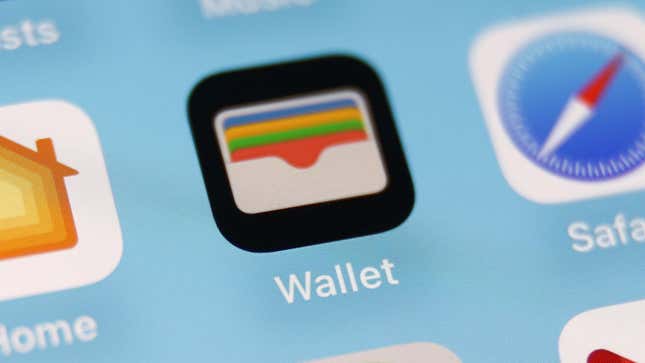
The Consumer Finance Protection Bureau (CFPB) proposed to hold big tech accountable to the same regulations that banks are, in a filing Tuesday. If Apple and PayPal offer financial services similar to banks like savings accounts, credit cards, and payments, the CFPB wants to regulate them like it does the banks.
The agency proposing these regulations, created in 2011 following the 2008 financial crisis, is tasked with protecting US consumers from looming financial threats and ensuring fairness, transparency, and competition – three things tech is not great at. The CFPB sees digital wallets as the next frontier of their coverage. Apple Wallet, PayPal, and Venmo capture billions of American taxpayer dollars but lack the same regulation the finance world adheres to.
Apple and PayPal did not immediately respond to Gizmodo’s request for comment.
“These activities used to be conducted almost exclusively by supervised banks,” said CFPB Director Rohit Chopra. “Today’s rule would crack down on one avenue for regulatory arbitrage by ensuring large technology firms and other nonbank payments companies are subjected to appropriate oversight.”
Middle- and lower-income Americans use digital payment applications about as much as they use cash, according to the CFPB. The proposal would allow CFPB examiners inside big tech companies to carefully scrutinize their activities to ensure they’re following the law.
Big tech blurs the lines between banking and regular commercial activities, according to Chopra, who committed to taking on big tech in a speech last month. Chopra warned of American apps becoming like the Chinese super-app WeChat, saying big tech has “a strong incentive to surveil all aspects of a consumer’s transactions.” However, that seems like the goal over at Elon Musk’s X.
Apple Pay Later launched nationwide this month, providing credit to anyone with an iPhone. This venture is unique for Apple, as it is funded by a subsidiary Apple Finance LLC, and not Goldman Sachs which funds the Apple Card and Apple Savings Account.
The CFPB warned Americans in June to not store money in Venmo, CashApp, or PayPal because it’s not insured up to $250,000 like a bank account. In the case of a financial disaster or company failure, funds held on big tech platforms are not insured.
The proposal is not yet law but now is in a commenting period, which will be open until Jan. 8, 2024.